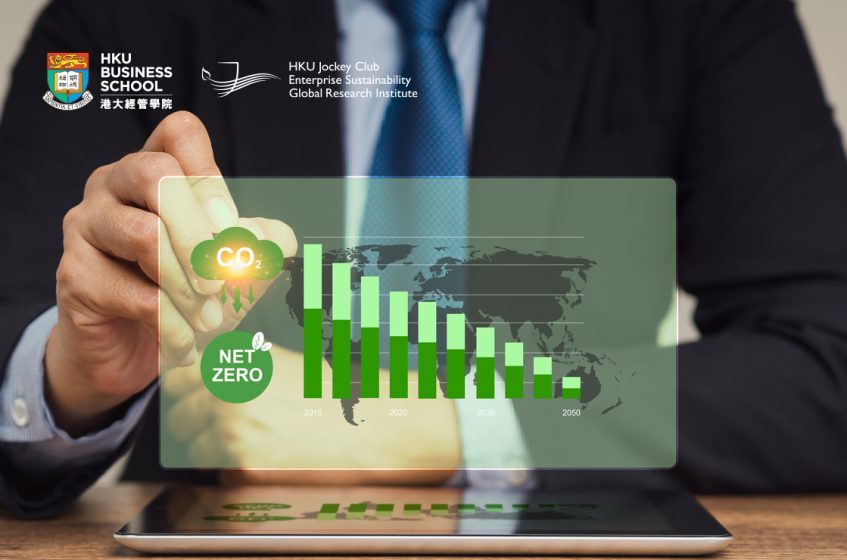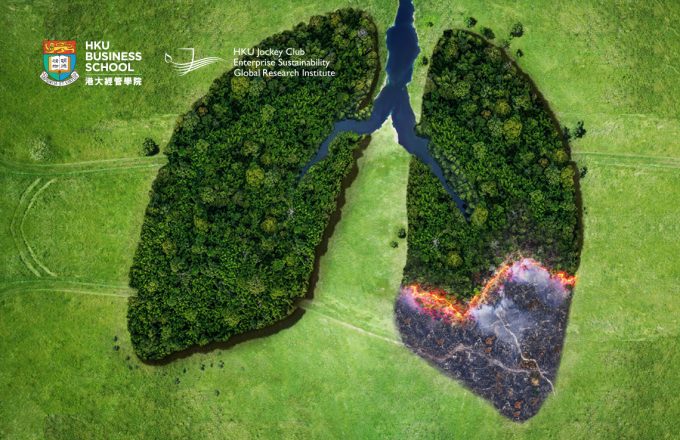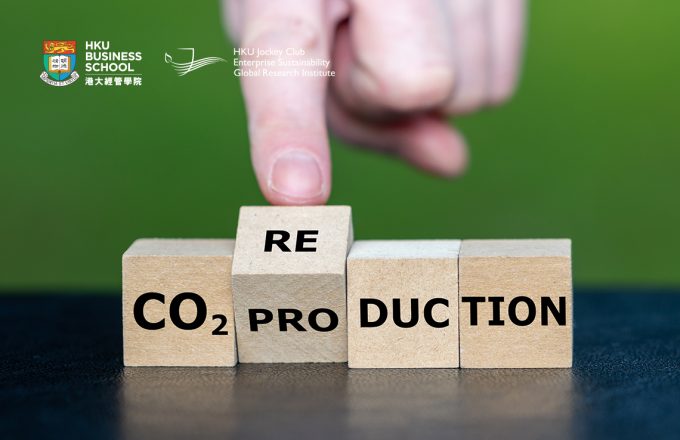
Carbon-Transition Risk and Net-Zero Portfolios
- Net-zero portfolios (NZPs), managing over $130 trillion USD in assets, align financial performance with climate goals. These portfolios reward firms that actively reduce emissions while excluding those lagging behind, driving market incentives for decarbonization.
- The study introduces distance to exit (DTE), a forward-looking metric that measures a firm’s risk of exclusion from NZPs based on its carbon footprint and decarbonization efforts.
- Firms with higher DTEs—seen as safer from exclusion—tend to have higher valuations but lower expected returns, highlighting the market’s pricing of carbon-transition risks.
- DTE serves as both a risk measure and a catalyst for action, incentivizing firms to accelerate decarbonization to remain in NZPs, while enabling portfolios to achieve up to 95% reductions in carbon intensity without sacrificing sector diversification.
Source Publication:
Gino Cenedese, Shangqi Han, and Marcin Kacperczyk, “Carbon-Transition Risk and Net-Zero Portfolios,” SSRN Working Paper, December 2024.
The transition to a low-carbon economy is not just a scientific or policy imperative; it is reshaping financial markets. Net-zero portfolios (NZPs) represent a pivotal innovation, enabling institutional investors to drive decarbonization through capital allocation. By managing over $130 trillion USD in assets, NZPs connect financial performance to climate accountability.
The logic of NZPs is straightforward: companies actively reducing emissions gain inclusion, whereas those lagging face exclusion. Yet, the implications go beyond capital flows. NZPs introduce a market-driven mechanism whereby the risk of exclusion becomes a powerful signal, incentivizing firms to adopt credible decarbonization strategies.
In their 2024 study, Cenedese, Han, and Kacperczyk introduce distance to exit (DTE) as a key metric to quantify this pressure. DTE measures how long a firm can remain in an NZP based on its carbon profile, offering a forward-looking lens on transition risk.
DTE is more than a static risk measure; it is a dynamic tool that captures both current emissions and the anticipated future risk of exclusion based on decarbonization progress. By integrating emissions data, future decarbonization commitments, and overall climate trajectories, DTE allows investors to estimate how long a company can remain in an NZP before being excluded due to failure to meet decarbonization standards.
The study finds a strong correlation between DTE and corporate financial performance. Firms with longer DTEs—those perceived as less likely to be excluded from NZPs in the near future—tend to command higher market valuations and lower expected stock returns. Specifically, a one-standard-deviation increase in DTE is linked to a reduction of approximately 1.2–2.3 percentage points in the following month’s annualized stock returns. Furthermore, the significance of DTE has grown in the post-Paris Agreement era, highlighting how investors are increasingly prioritizing long-term climate risks and accountability in their investment strategies.
DTE does more than just measure risk; it actively drives corporate action. By signaling the risk of exclusion from NZPs, DTE creates an incentive for companies to accelerate their decarbonization efforts to remain part of these high-profile, climate-conscious portfolios. In essence, DTE transforms NZPs into a market-driven mechanism for encouraging meaningful corporate action on climate change.
The study further illustrates this dynamic by showing NZPs structured around DTE-based thresholds can significantly reduce portfolio carbon intensity—by up to 95%—while maintaining sector diversification. This finding demonstrates how financial tools, when combined with strategic decarbonization metrics such as DTE, can help institutional investors align their portfolios with broader climate objectives.
For investors, DTE provides a sophisticated framework to balance the pursuit of financial returns with the need for decarbonization. By incorporating DTE into investment strategies, investors can more accurately assess carbon-transition risks and make more informed decisions about portfolio composition.
For companies, the message is clear: adopting credible, transparent decarbonization strategies is no longer optional. As NZPs continue to influence capital flows, companies that fail to adopt strong decarbonization commitments risk exclusion from these portfolios, which can have significant financial implications. As such, businesses must prioritize tangible, measurable efforts to reduce carbon emissions and align their strategies with long-term climate goals.
For policymakers, DTE highlights the importance of integrating market signals into regulatory frameworks. By fostering environments that encourage transparency and the use of such indices, policymakers can expedite the transition to a low-carbon economy.







